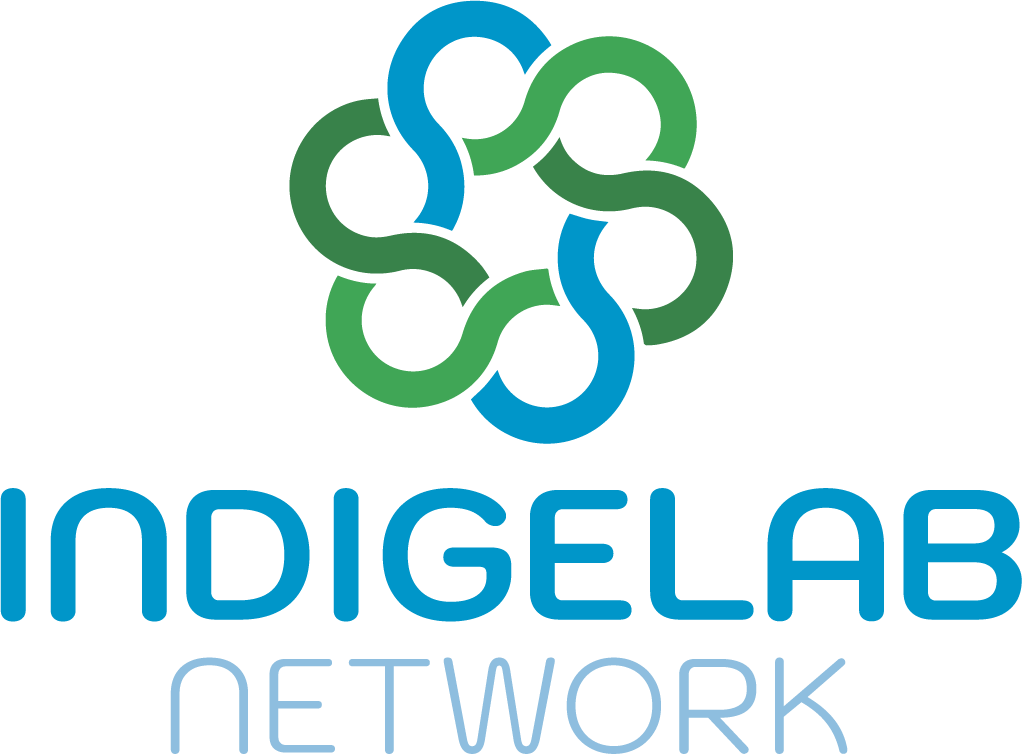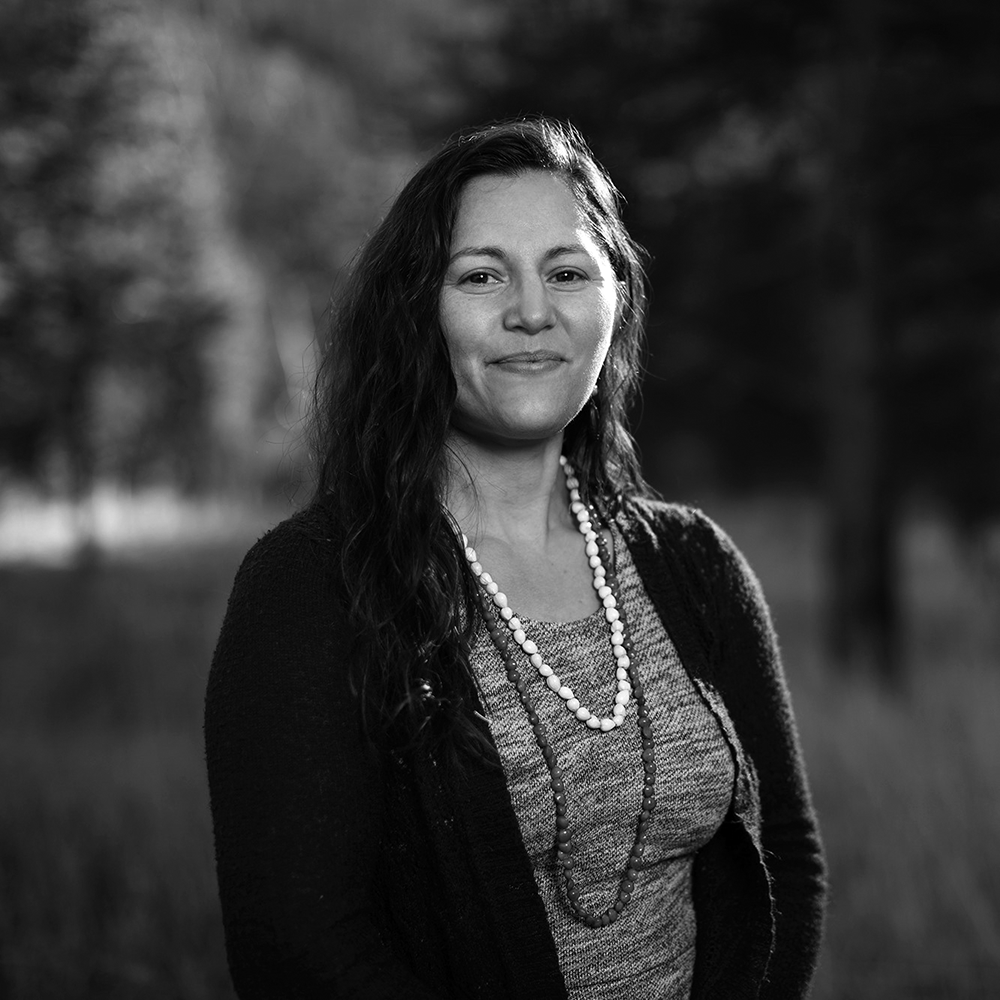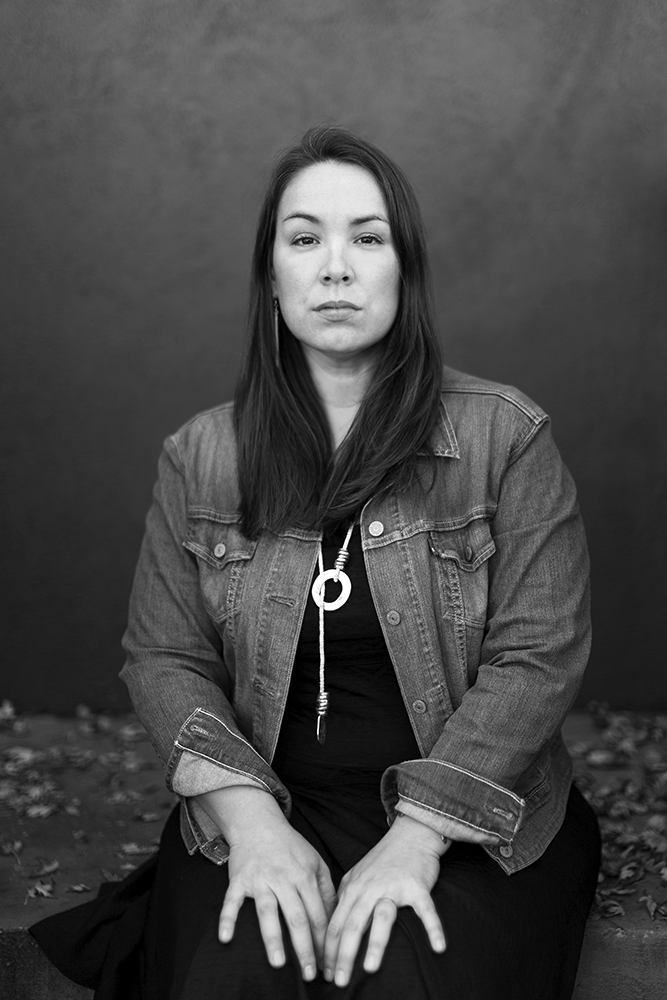We’re doing research differently, starting with our labs. The IndigeLab Network (IN) currently includes 19 Indigenous women and gender minority researchers who lead unique research collectives that make room for Indigenous ways of knowing, doing, and being in the academy.
Our goal is to shed light on the usually black-boxed and behind-the-scenes knowledges and methods of bringing Indigenous methodologies and theories of change into the social worlds of labs, studios, portfolios, centres, and other collective spaces within colonial institutions like universities. The anticipated impacts of IN activities include: insights into the ways Indigenous methodologies can impact internal research cultures and collectives; collaborative training of over 200 Indigenous and allied HQP via lab exchanges; influence of international professionalization organizations through research-based recommendations; and an international network of Indigenous women and gender minority PIs, students, and research collectives.
The IndigeLab Network is funded by a seven-year Partnership Grant from the Canadian Social Sciences and Humanities Research Council (2023-2030+).
Our Team
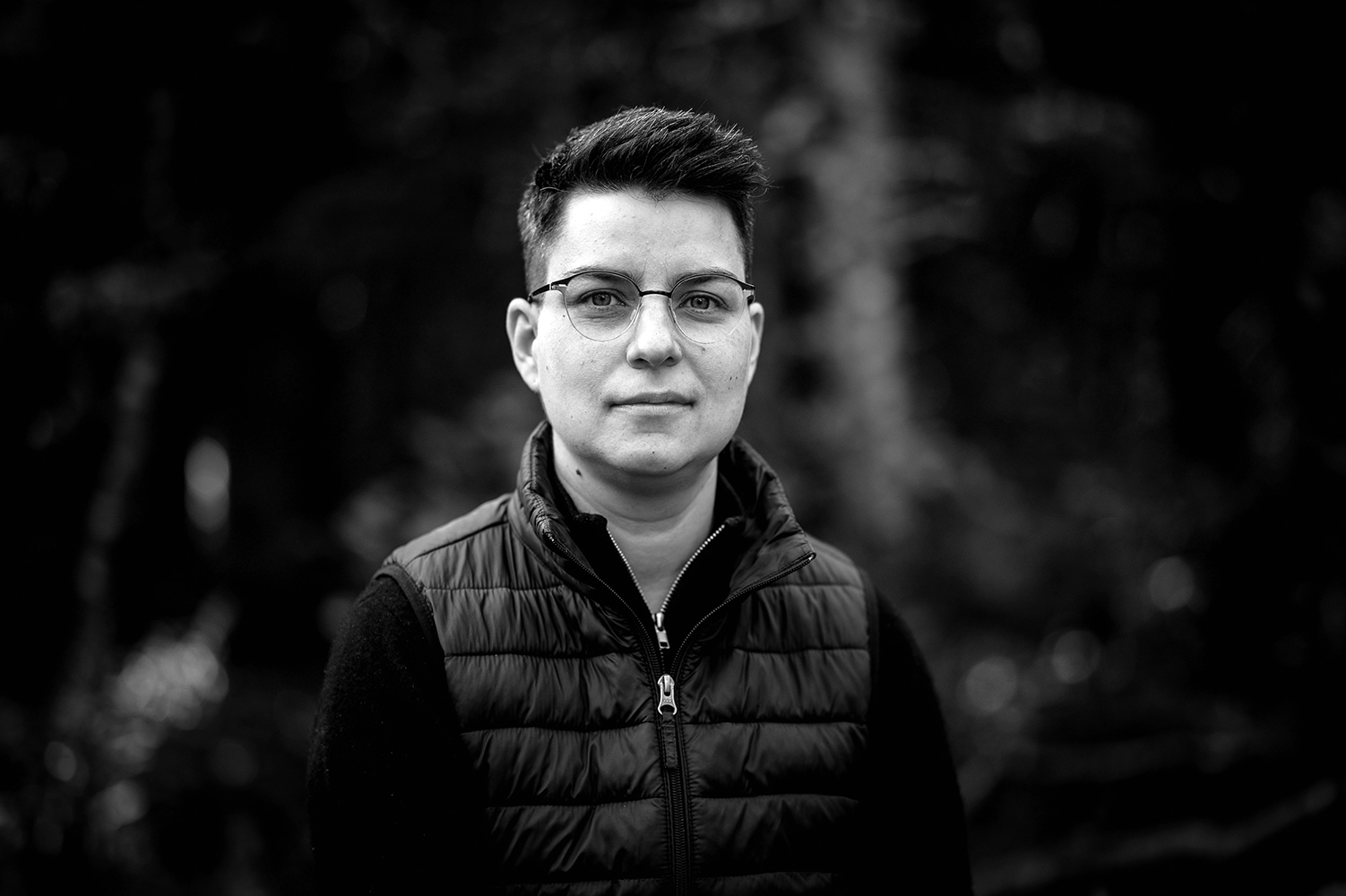
Max Liboiron
Co-Director
More About Max
(Michif/Red River Metis and settler, they/them) Dr. Max Liboiron is a Professor in Geography at Memorial University, where they direct the Civic Laboratory for Environmental Action Research (CLEAR). CLEAR develops feminist and anti-colonial methodologies to study marine plastic pollution. Liboiron is author of Pollution is Colonialism (Duke University Press, 2021) and co-author of Discard Studies: Systems, Wasting, and Power (MIT Press, 2022).
Lab: Civic Laboratory for Environmental Action Research (CLEAR)
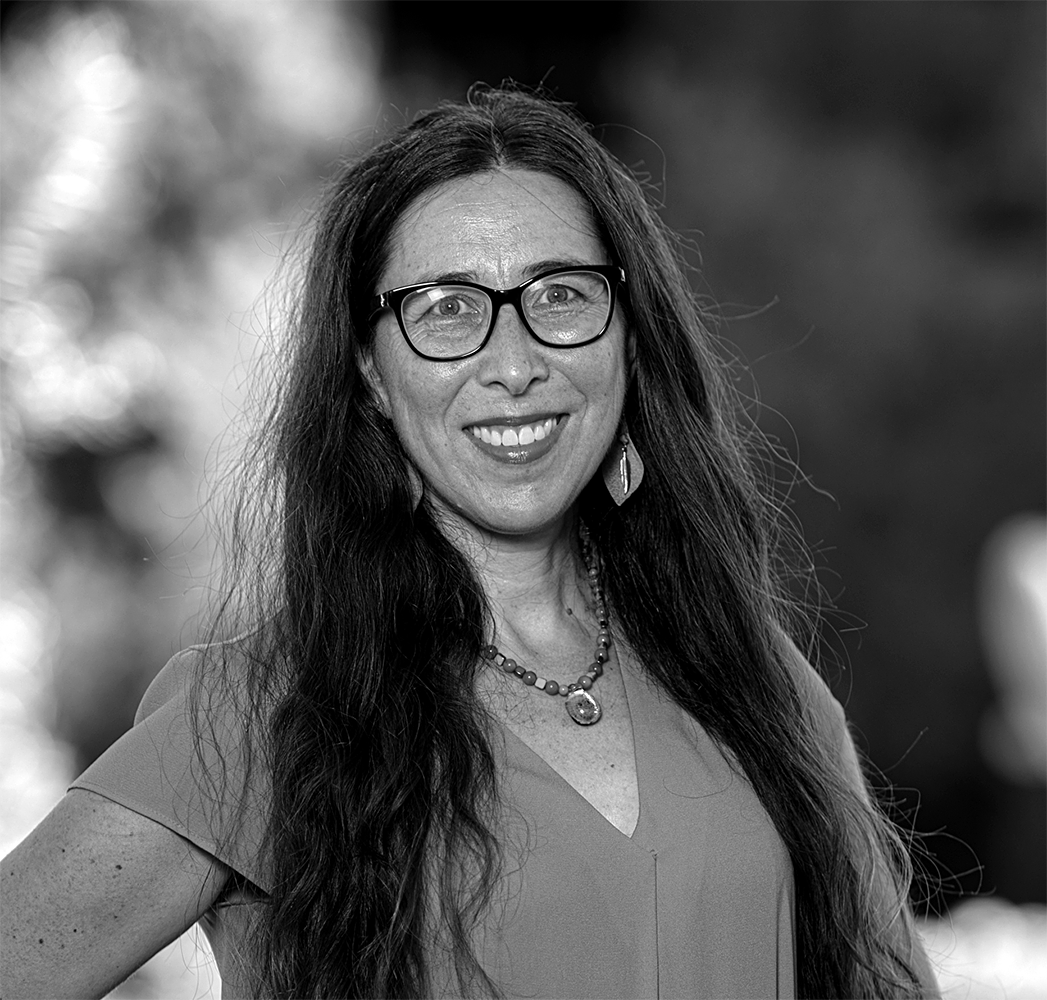
Stephanie Russo Carroll
Co-Director
More About Stephanie
(Ahtna, a citizen of the Native Village of Kluti-Kaah in Alaska, and of Sicilian descent, she/her)
Dr. Carroll directs the Collaboratory for Indigenous Data Governance, co-founded the US Indigenous Data Sovereignty Network, and co-founded and chairs the Global Indigenous Data Alliance (GIDA), the Indigenous Data Working Group at the IEEE, and the International Indigenous Data Sovereignty Interest Group at the Research Data Alliance. At the University of Arizona (UA), she is Associate Professor, Public Health and American Indian Studies Graduate Program; Assistant Research Professor, Udall Center for Studies in Public Policy and its Native Nations Institute; and Affiliate Faculty in the College of Law. Stephanie’s interdisciplinary research group the Collaboratory for Indigenous Data Governance develops research, policy, and practice innovations for Indigenous Data Sovereignty.
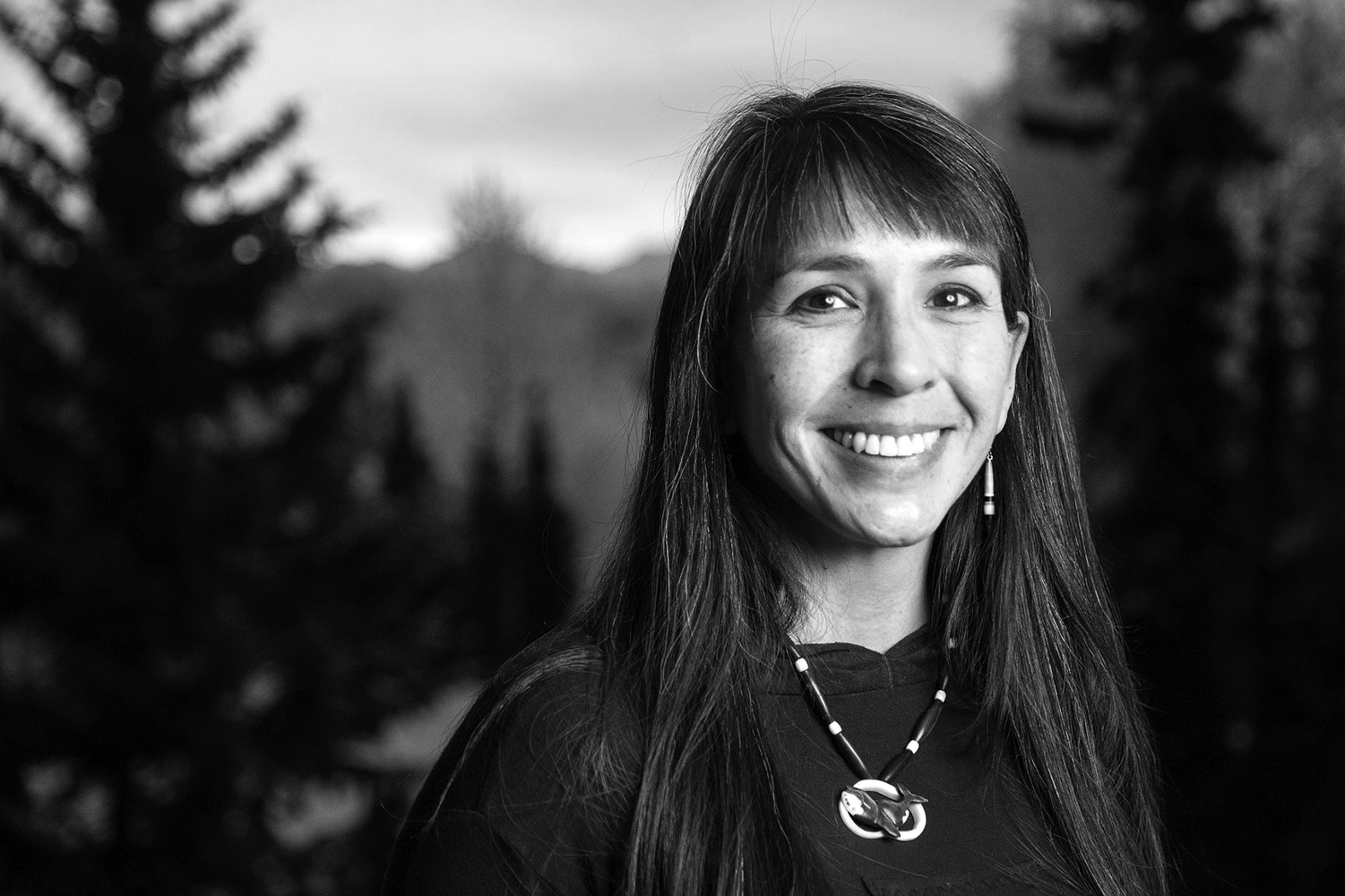
Kat Milligan-McClellan
More About Kat
(Inupiaq, she/her)
Dr. Kat Milligan-McClellan is an Inupiaq, runner, mother, microbiologist, and beader, not necessarily in that order. Raised in the remote community of Kotzebue Alaska above the Arctic Circle that is 80% Alaskan Native, she uses an Alaskan fish, stickleback, to study host-microbe interactions to determine the extent that the host environment contributes to host-microbe interactions and how ecotoxicants affect the development of fish. She also studies how to improve STEM education, with a focus on historically excluded and underrepresented students.
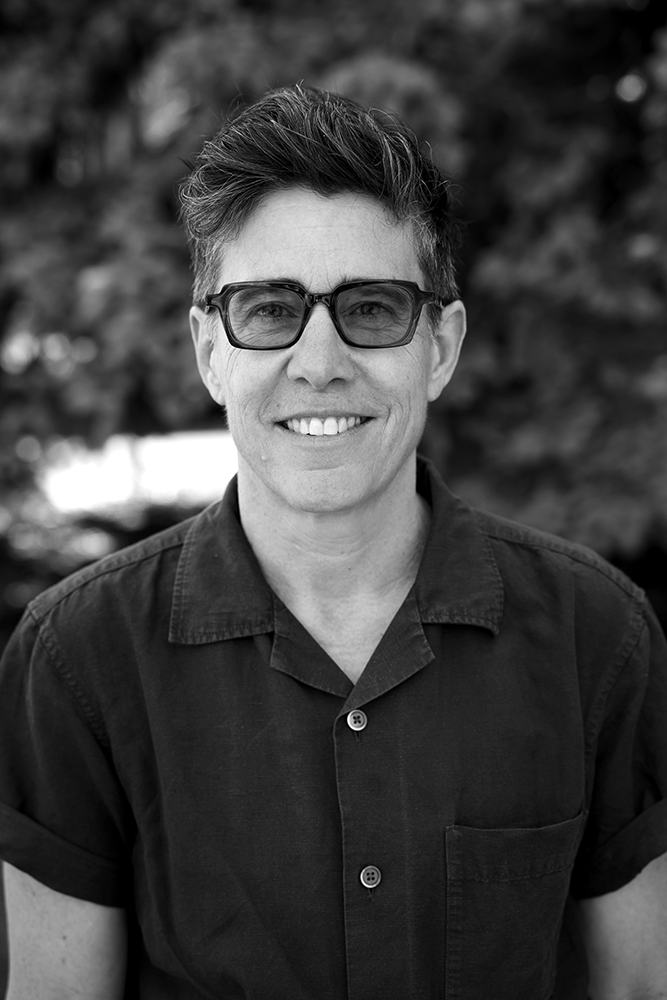
M. Murphy
More About M. Murphy
(Red River Métis, they/them)
M Murphy is a Professor of History and Women and Gender Studies at the University of Toronto, where they hold a Tier 1 Canada Research Chair in Science & Technology Studies and Environmental Data Justice at the University of Toronto. Their research is concerned with feminist and anti-colonial approaches to environmental justice, data, and reproduction, as well as have a focus on Indigenous science and technology studies. They are Co-Director of the?Technoscience Research Unit,?which hosts an Indigenous Environmental Data Justice Lab. They are lead social science PI in a large CFREF project working with chemists and automated substance discovery, where their lab brings Indigenous STS methods to new areas of chemistry and automation practice. Murphy is the author of The Economization of Life (2017), Seizing the Means of Reproduction (2012), and Sick Building Syndrome and the Politics of Uncertainty (2006). Murphy’s current research focuses on the relationships between pollution, colonialism, and technoscience on the lower Great Lakes.
Lab: Environmental Data Justice Lab & TechnoScience Research Unit (TRU)
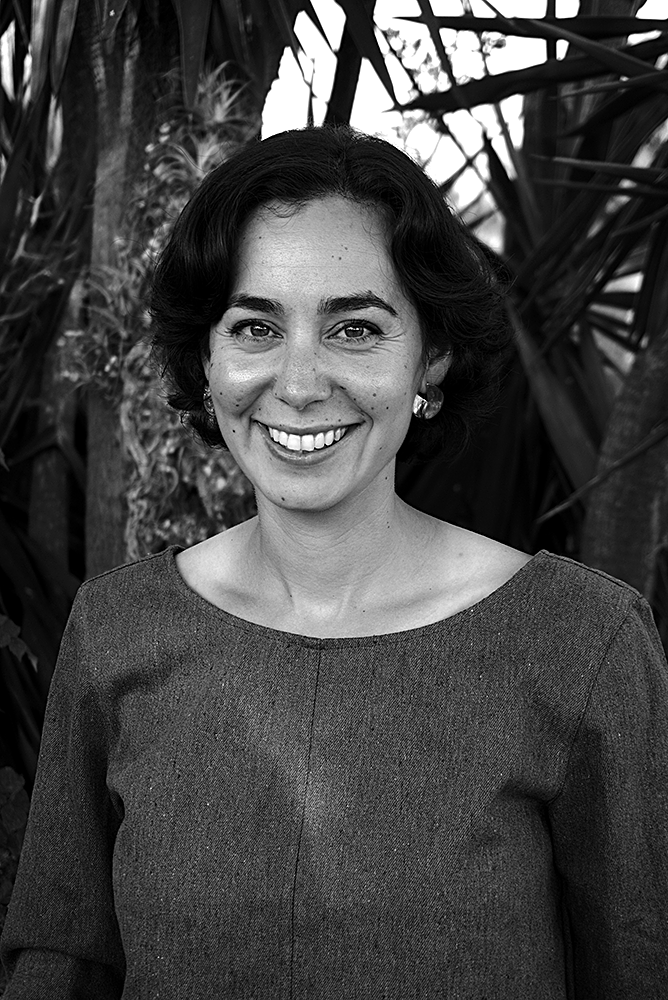
Sarah Aarons
More About Sarah
(Iñupiaq, she/her)
Dr. Aarons was born in and raised in Alaska. She obtained her Ph.D. in Geology from the University of Michigan in 2016, and she then received a University of California Chancellor’s Postdoctoral Fellowship at UC Irvine, followed by the Ford Foundation Postdoctoral Fellowship at the University of Chicago. Sarah joined the faculty at Scripps Institution of Oceanography at UCSD in 2019. Sarah’s research focuses on understanding and tracking earth surface processes as a function of a changing climate using chemistry.
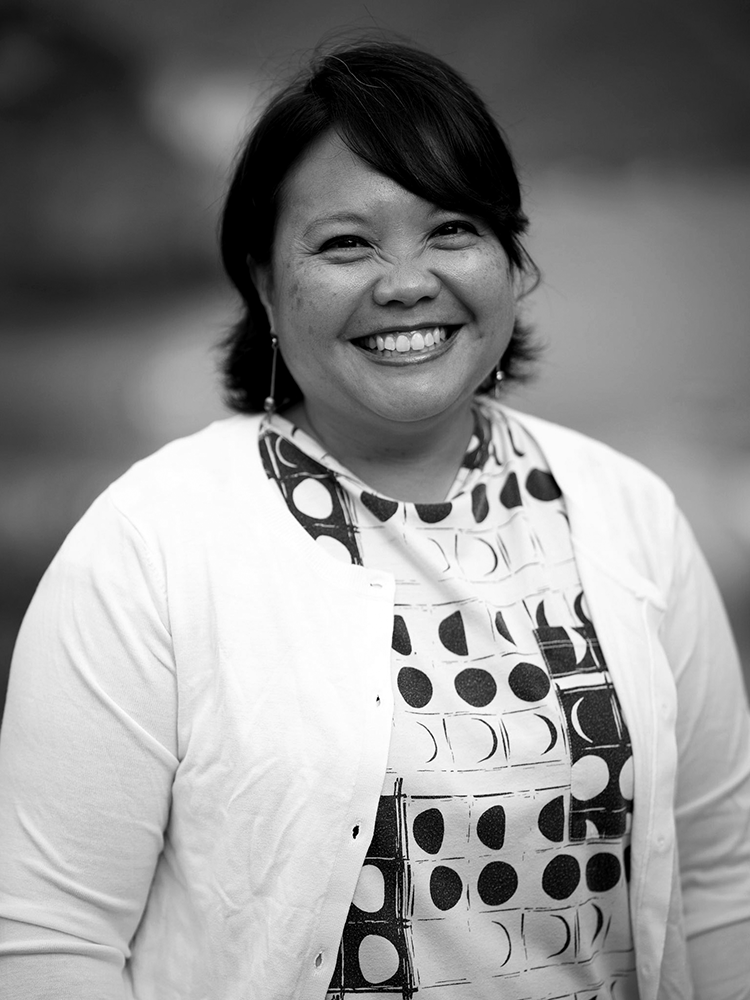
Rosie Anolani Alegado
More About Rosie
(Pinay + ??iwi, she/hers/?o ia)
Rosie Anolani Alegado is a transdisciplinary Indigenous scholar and practitioner using model systems and field experiments to investigate how ecology informs microbial evolution in a changing climate. Her lab, ME*E is an interdisciplinary ecology and evolution laboratory whose methods center research as praxis, training scholars to draw upon multiple knowledge systems to address key problems and empower communities to understand and protect their resources. Alegado has influenced national policy on ethical research practices with Indigenous communities and co-developed processes for developing sustained, equitable research partnerships with local communities. Her professional service includes memberships on the US National Academy of Science, Engineering and Medicine Ocean Studies Board and the US National Committee for the UN Decade of Ocean Science for Sustainable Development.
Lab: ME*E HAWAI?I (Alegado Laboratory for Microbial Ecology & Evolution in Hawai’i)
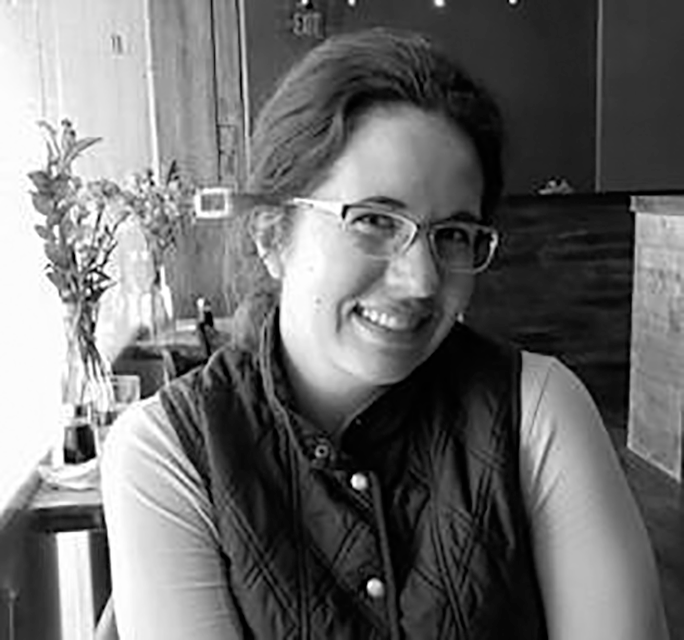
Katherine Crocker
More About Katherine
Lab: Crocker Lab
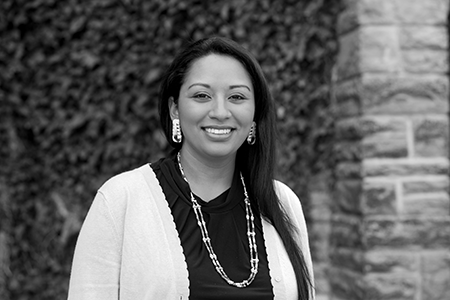
Dr. Kelsey Leonard
More About Kelsey
(Shinnecock, she/her) Dr. Kelsey Leonard holds a Canada Research Chair in Indigenous Waters, Climate and Sustainability and is an Assistant Professor in the School of Environment, Resources, and Sustainability in the Faculty of Environment at the University of Waterloo, where her research focuses on Indigenous Water justice and its climatic, territorial, and governance underpinnings. As a water scientist and legal scholar, Dr. Leonard seeks to establish Indigenous traditions of Water conservation as the foundation for international water policymaking. She represents the Shinnecock Indian Nation on the Mid-Atlantic Committee on the Ocean, which is charged with protecting America’s Ocean ecosystems and coastlines. She also serves as a member of the Great Lakes Water Quality Board of the International Joint Commission. She is an enrolled citizen of Shinnecock Indian Nation.
Lab: WAMPUM lab
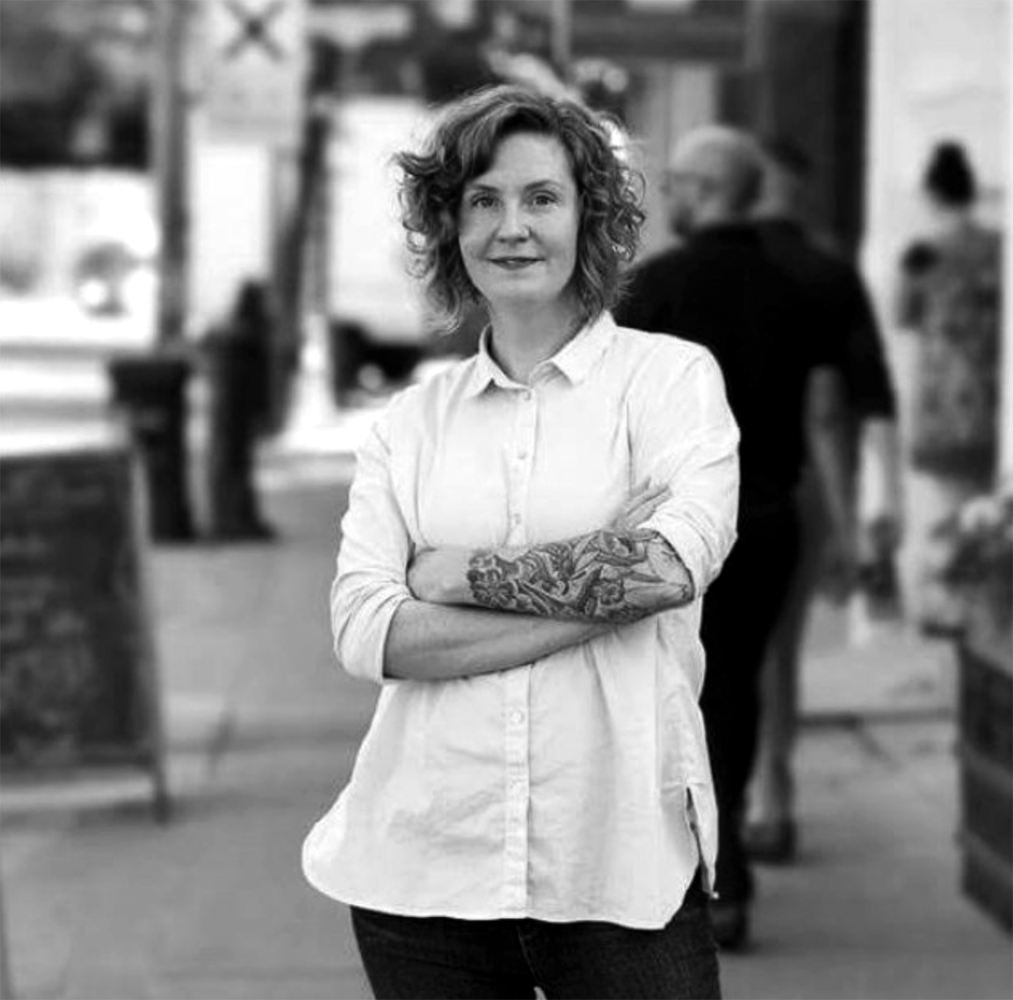
Emily Simmonds
More About Emily
(Red River Métis, Scottish and British, she/her) Emily Simmonds is a critical Science and Technology Studies scholar of mixed ancestry. Her doctoral work focuses on nuclear colonialism in the Canadian context. She is a researcher at Ganawishkadawe (Tending to the Heart of the Fire), the Center for Wise Practices Indigenous Health at Women’s College Hospital, where she supports the development of care pathways, policies, and recommendations that address anti-Indigenous racism, including the disproportionate impacts of colonial industrialized environmental health hazards experienced by First Nations, Inuit, and Métis peoples. She is a founding member of the Feminist, Anti-Colonial, Anti-Imperial Nuclear Gathering (FACING Nuclear) and an alumnus of several critical justice research collectives focusing on anti-racist and anti-colonial scholarship in the humanities and social sciences, including the Technoscience Research Unit, the Digital Research Ethics Collaboratory, and the Civic Laboratory for Environmental Action Research.
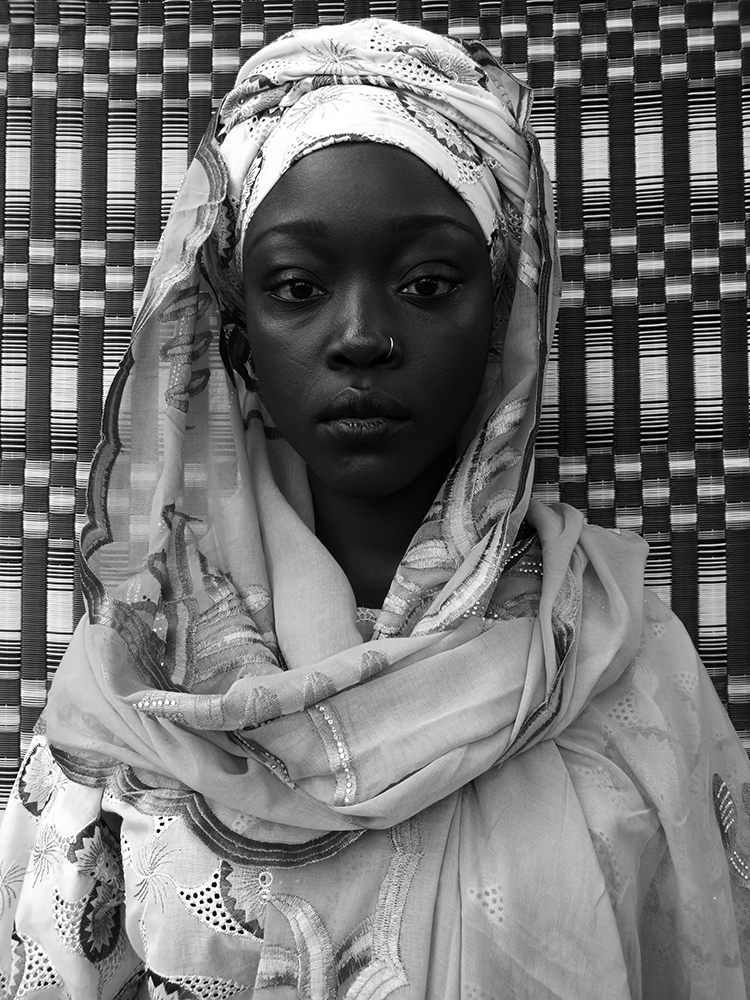
Mukhtara Ay?t?jú Adékúnbi Yusuf
More About Mukhtara
(Yoruba, they/them) Mukhtara Ay?t?jú Adékúnbi Yusuf is the descendant of Yoruba tradeswomen, a?? oke weavers, onifá, and eleégún. Mukhtara is currently a visiting professor at NYU Tandon’s School of Engineering in the Integrated Design and Media program and holds a BA from Dartmouth College, an MA in Communications and Media from UCSD and an MFA in Design from UT Austin. Mukhtara’s work covers black embodiment and spatial design, racialised trauma, settler colonialism within the African context, and black and indigenous ecologies. Mukhtara is an artist, educator, designer, researcher, the founder of IL? an indigenous design and agricultural healing laboratory based in Ibadan, Nigeria, as well as the organising founder of African Indigenous Sovereignty.
Lab: IL?

Erica (Samms) Hurley
More About Erica
(Mi’kmaq, she/her) Erica (Samms) Hurley is a Mi’kmaq woman from the west coast of Newfoundland. She has community connections through both parents with stronger connection to Flat Bay. As a youth her interest was in Indigenous health which transcended into her becoming a Registered nurse. She has taught in nursing education since 2007 and is currently a Assistant Professor with Memorial University Faculty of Nursing with a cross appointment to Humanities at Grenfell Campus. Her work is varied but includes Indigenous health, heart health, healing, wellness, Indigenous women, Indigenous historical context, culture, ceremony, methodological approaches, and so on.
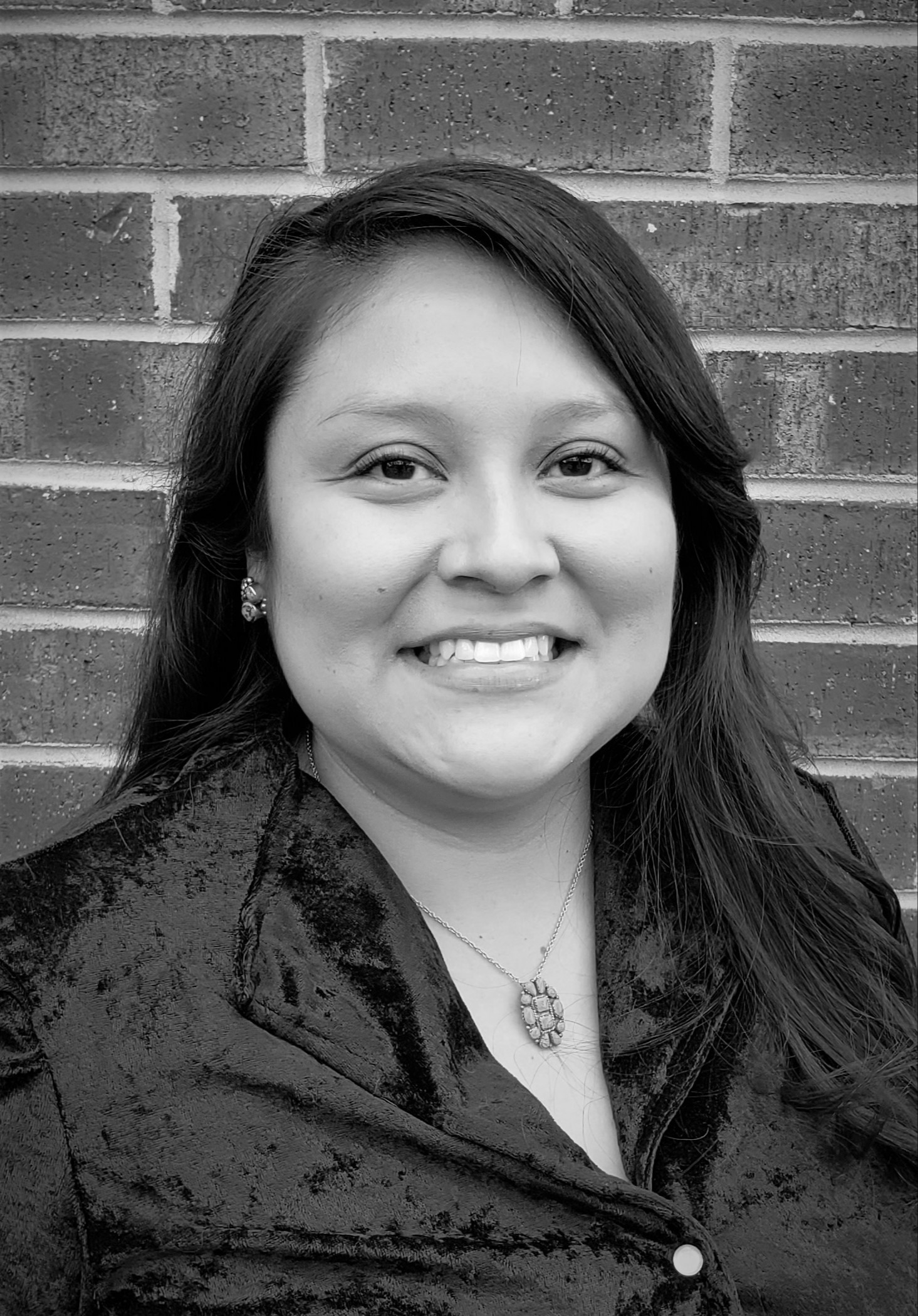
Rene Begay
More About Rene
(Diné, Navajo)
She is an Indigenous geneticist and public health researcher. She obtained her Bachelors of Science degree in Biology from the University of Arizona and a Masters in Clinical Science from the University of Colorado Anschutz Medical Campus. Currently, she works as a Professional Research Assistant at the Centers for American Indian and Alaska Native Health at the University of Colorado School of Public Health. She graduated with her Masters of Public Health degree as a Bloomberg Scholar with the Johns Hopkins School of Public Health focusing on food systems and obesity. Some of her research interests are exploring the Cultural, Clinical, Ethical, Legal, Social implications and concerns related to genomics research that include Indigenous communities. Her goal is to improve the health and wellbeing of her people as well as other Indigenous groups.
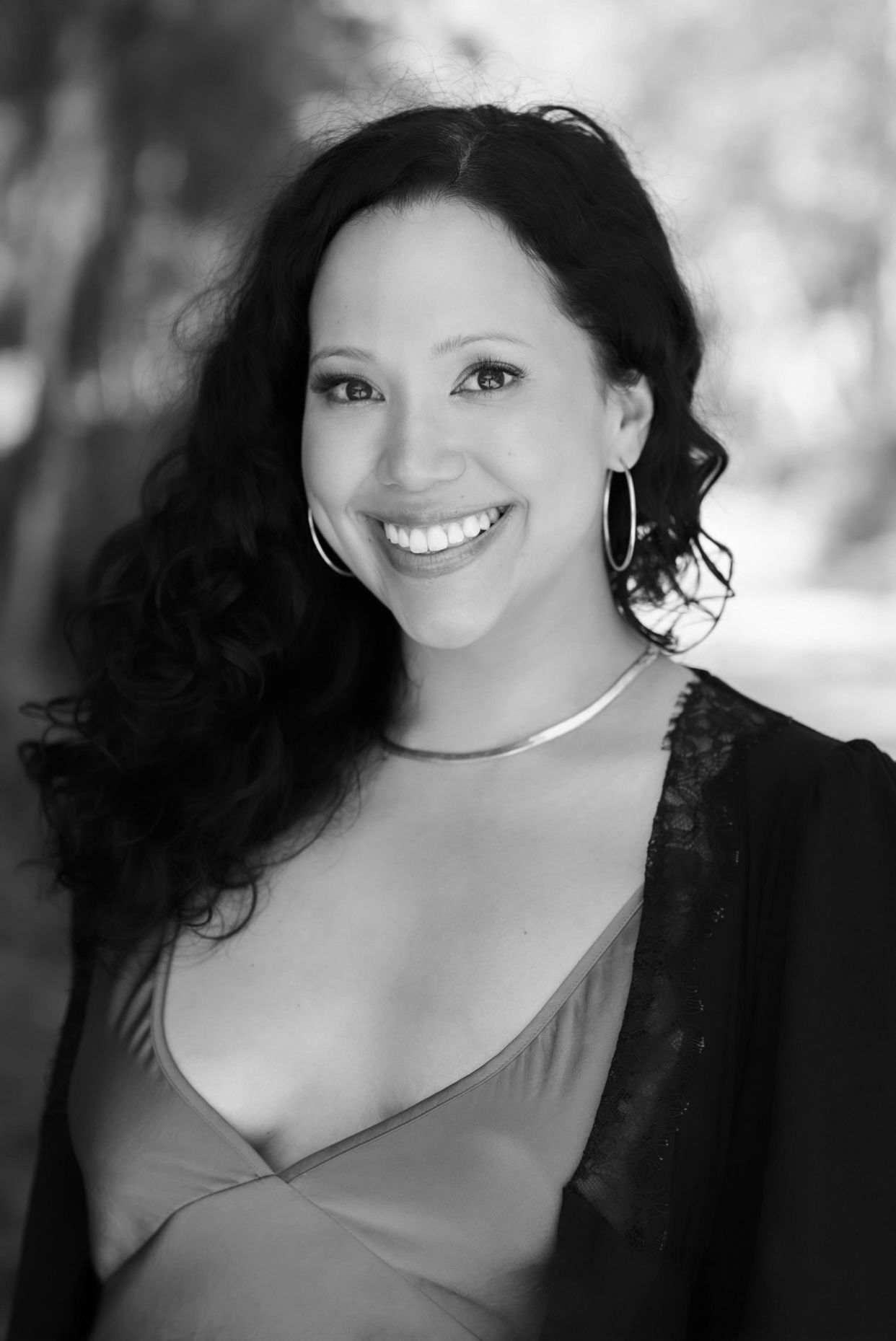
Kristen Bos
More About Kristen
Kristen Bos is the Co-Director of the Technoscience Research Unit. Kristen is an Indigenous feminist researcher trained in archaeological approaches to material culture as well as an Indigenous science and technology studies (STS) researcher, who is concerned the relationship between colonial, gendered, and environmental violence. She is an Assistant Professor of Indigenous Science and Technology Studies in the Historical Studies Department at the University of Toronto Mississauga, with a graduate appointment in Women and Gender Studies Institute at the University of Toronto St. George campus. She is also a graduate of the University of Oxford and the University of Toronto. Kristen is urban Métis based in Toronto, but her homeland is northern Alberta where prairie transitions into boreal forest. She is also the author of the upcoming novel, The Interrogation Room (Alchemy, 2025).
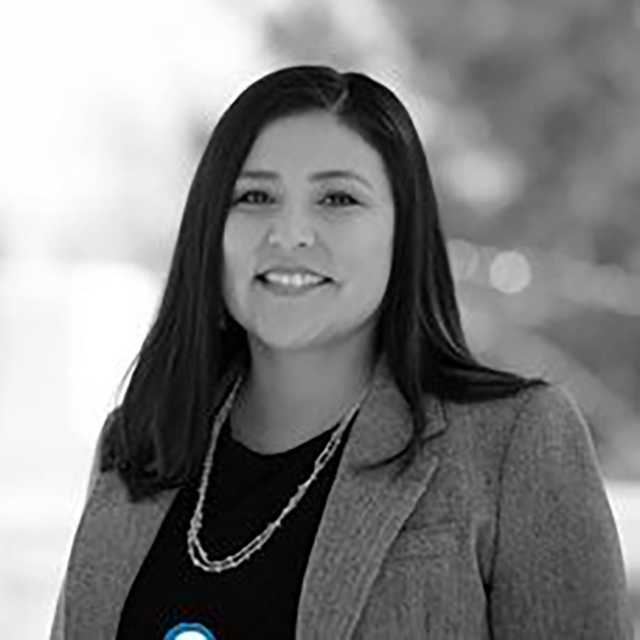
Cheryl Ellenwood
More About Cheryl

Lydia Jennings
More About Lydia

Veronica Madsen
More About Veronica
Veronica Madsen (she/her) is the IndigeLab Network Coordinator. She is mixed settler/Mi’kmaq member of the Metepengiag Mi’Kmaq Nation, New Brunswick. She grew up geographically closer to Wolastoqey First Nations, NB. Her love for travel has taken her to many places in the northern hemisphere, and for many years has called Denmark home. A work opportunity brought her family to Newfoundland and Labrador in 2006 where they have lived ever since. It is here at Memorial University where she received my B.A and is continuing her education towards a M.A in Cultural Geography. Her research interests lies in community-led housing initiatives in northern Indigenous communities, more specifically, Rádey??l?? kó (Fort Good Hope, NWT). Where she has had the honour to work with and research for the K’asho Got’ine Housing Society (KGHS).
Our Partners
Stay tuned for calls for partners in the future!
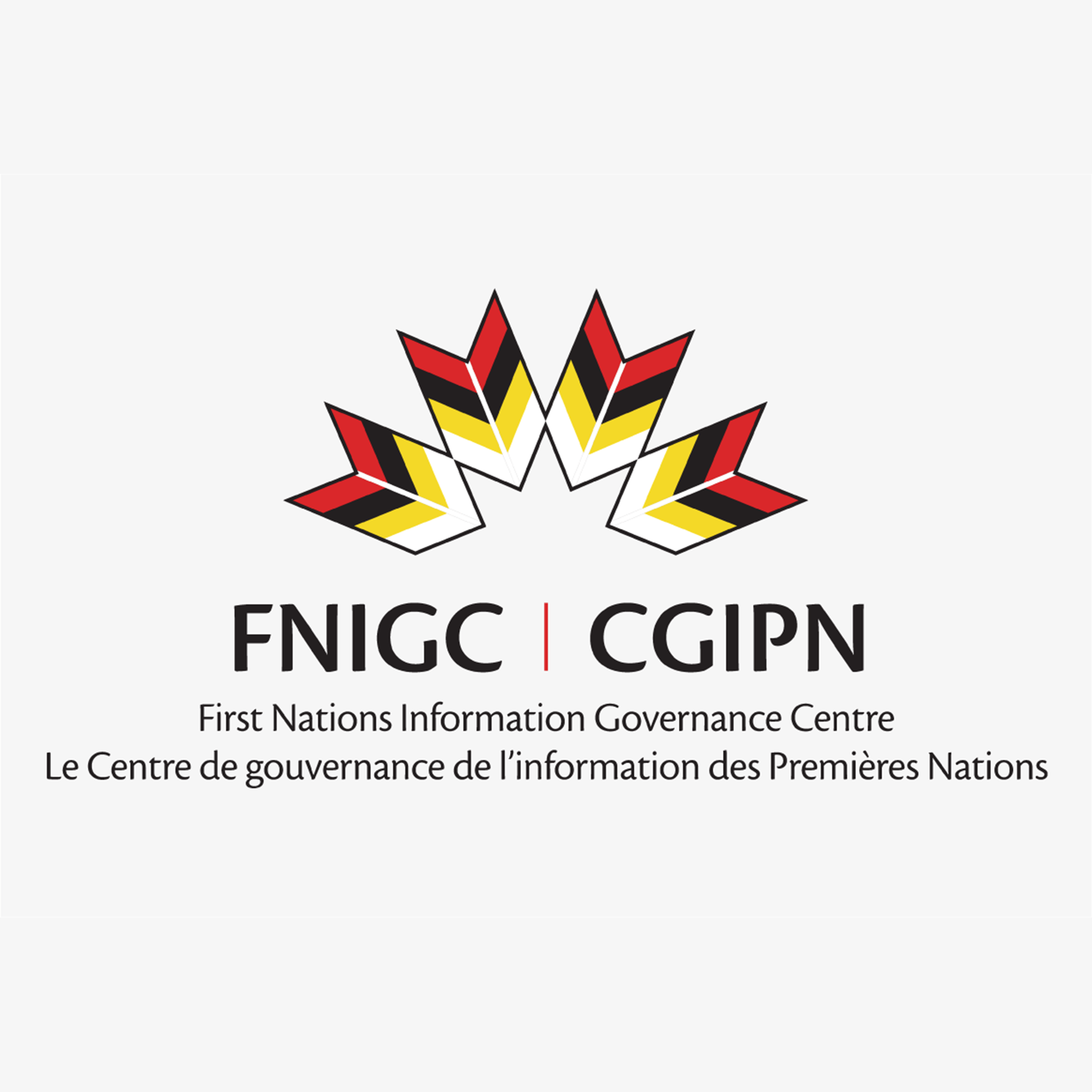
First Nations Information Governance Centre (FNIGC)
More About FNIGC
Data sovereignty is among the most pressing issues facing First Nations from coast-to-coast-to-coast. As Nations we recognize that information, knowledge, and research are critical to accessing resources, influencing government policy, or assessing the effectiveness of policies, services, programs, or public health interventions that affect our people. Access to timely, relevant, and quality data is essential to effectively advocate for change needed to adequately address health disparities Nations have experienced as a result of colonization and systemic racism.
Supporting and advocating for this kind of evidence?based decision making is what has fueled the important work of the First Nations Information Governance Centre (FNIGC) since its inception as an independent non?profit more than a decade ago and, in fact, since the original work of the National Steering Committee began more than two decades ago. Today, FNIGC and its partners remain at the forefront of First Nations data sovereignty and information governance efforts.
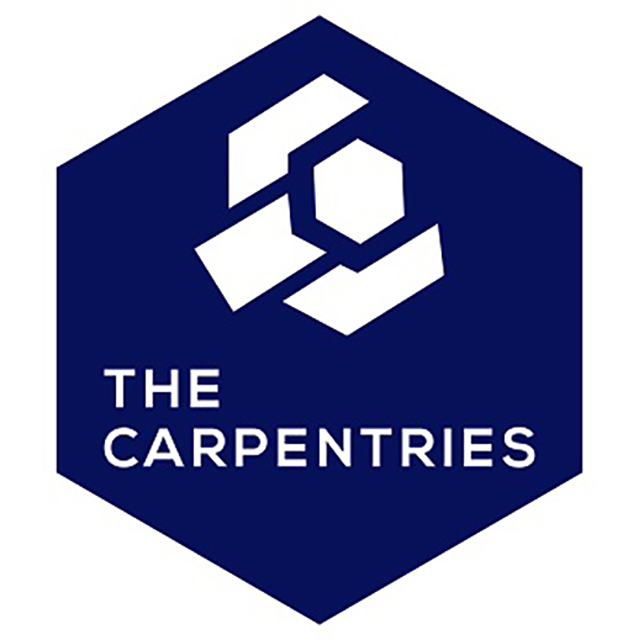
The Carpentries
More About The Carpentries
The Carpentries teaches foundational coding and data science skills to researchers worldwide. Our vision is to be the leading inclusive community teaching data and coding skills.
The Carpentries builds global capacity in essential data and computational skills for conducting efficient, open, and reproducible research. We train and foster an active, inclusive, diverse community of learners and instructors that promotes and models the importance of software and data in research. We collaboratively develop openly-available lessons and deliver these lessons using evidence-based teaching practices. We focus on people conducting and supporting research.
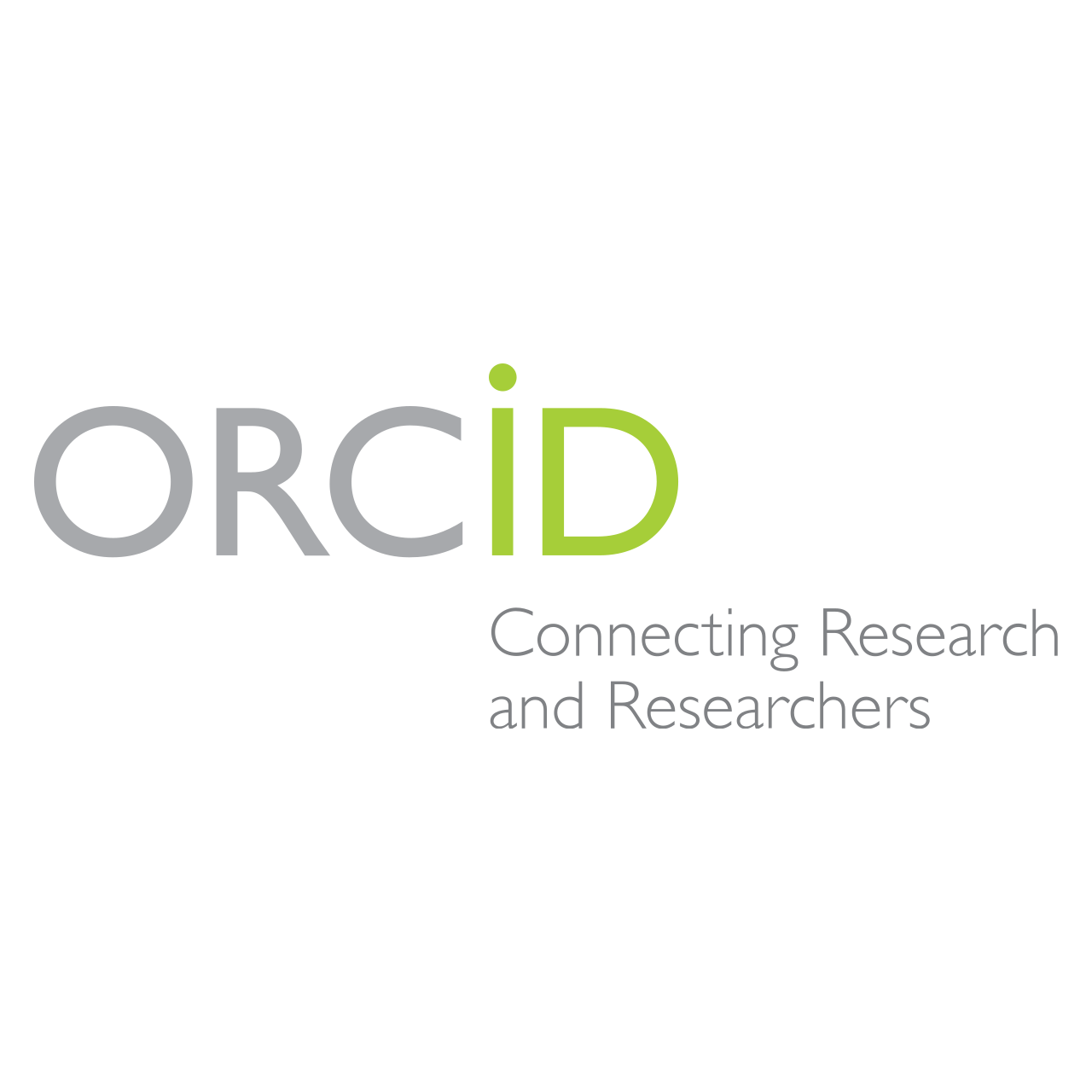
ORCiD
More About ORCiD
ORCID’s vision is a world where all who participate in research, scholarship, and innovation are uniquely identified and connected to their contributions across disciplines, borders, and time.
In order to realize our vision, ORCID strives to enable transparent and trustworthy connections between researchers, their contributions, and their affiliations by providing a unique, persistent identifier for individuals to use as they engage in research, scholarship, and innovation activities.
ORCID provides a persistent digital identifier (an ORCID iD) that you own and control, and that distinguishes you from every other researcher. You can connect your iD with your professional information — affiliations, grants, publications, peer review, and more. You can use your iD to share your information with other systems, ensuring you get recognition for all your contributions, saving you time and hassle, and reducing the risk of errors.
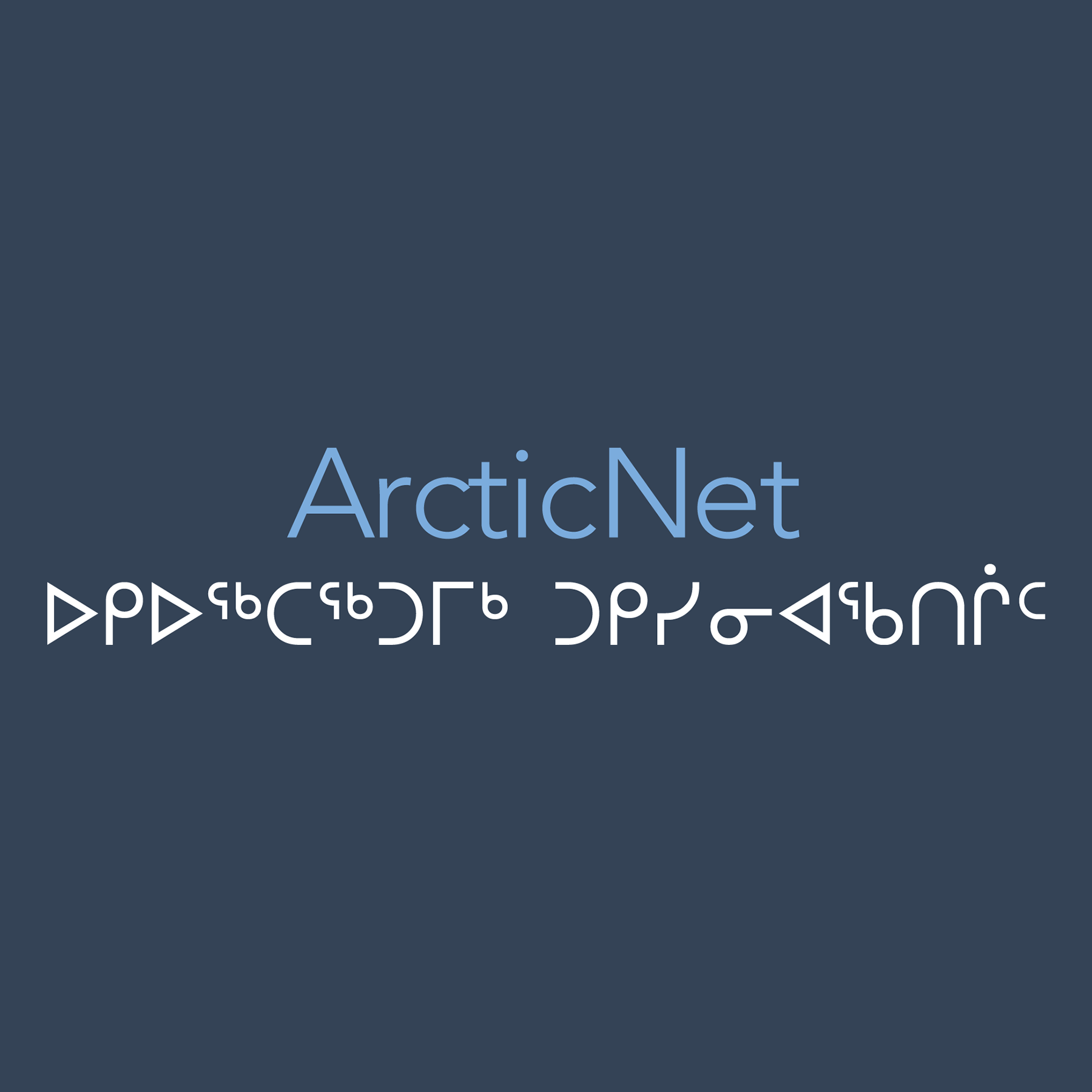
ArcticNet
More About ArcticNet
ArcticNet is a Network of Centres of Excellence of Canada that brings together scientists, engineers, and other professionals in the human health, natural and social sciences with partners from Inuit organizations, northern communities, federal and provincial agencies and the private sector to study the impacts of climate and socio-economic change in the Canadian North.
Our vision is A future where improved observations, modelling, capacity-building and knowledge exchange enable researchers, Inuit, Northerners and decision-makers to co-develop adaptation strategies minimizing negative impacts and maximizing positive outcomes resulting from the transformation of the Canadian Arctic.
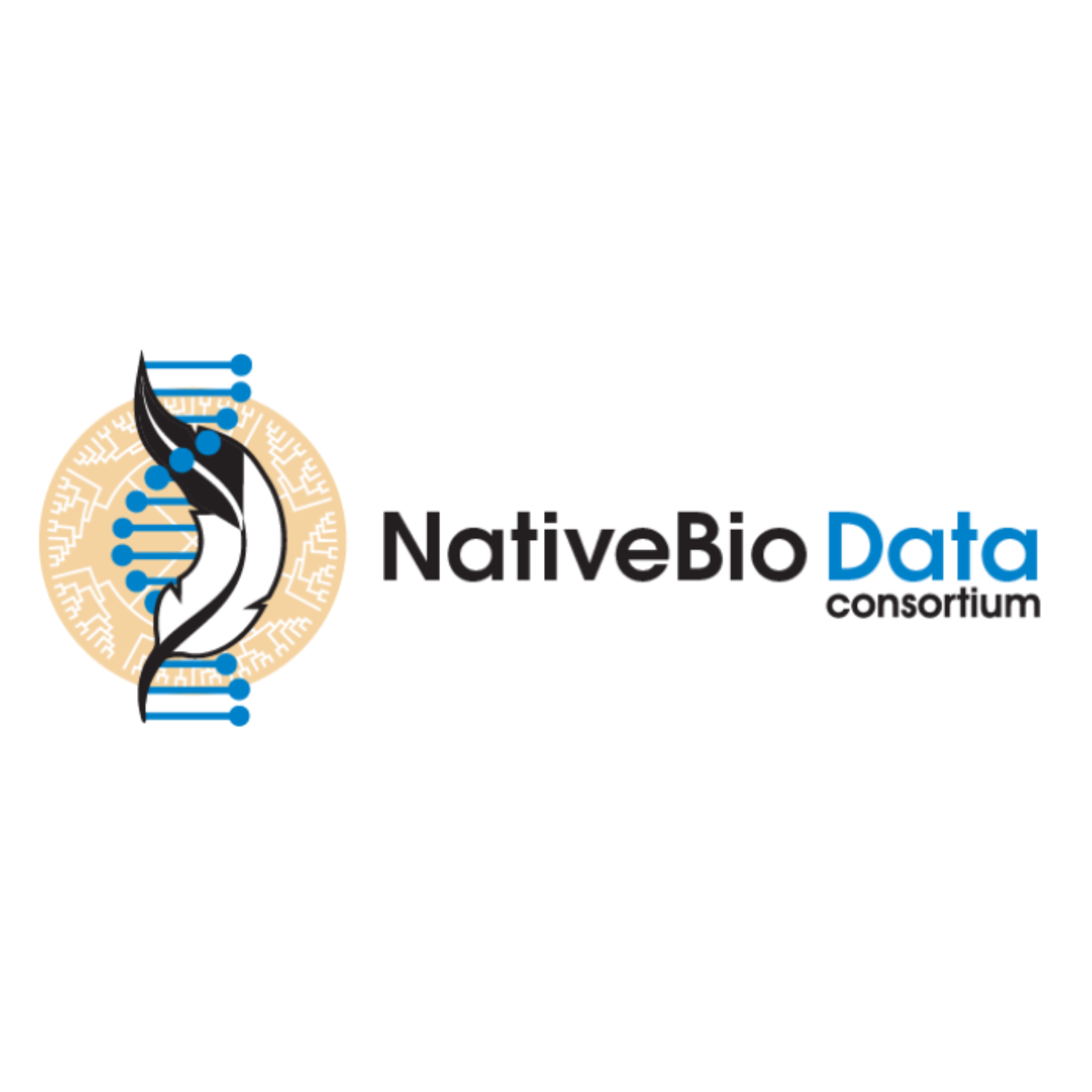
NativeBio Consortium
More About NativeBio Consortium
The Native BioData Consortium (NBDC) is the first 501(c)(3) nonprofit research institute led by Indigenous scientists and tribal members in the United States. As a biorepository (or “biobank”), we ensure that advances in genetics and health research benefit all Indigenous people.
The Native BioData Consortium (NBDC) is comprised of Indigenous scientific and bioethics experts in latest scientific techniques and administration functions. Furthermore, the samples will be stored on sovereign Native American land, on the Cheyenne River Sioux Tribe, which will provide additional protections for the participants’ samples from exploitation.
